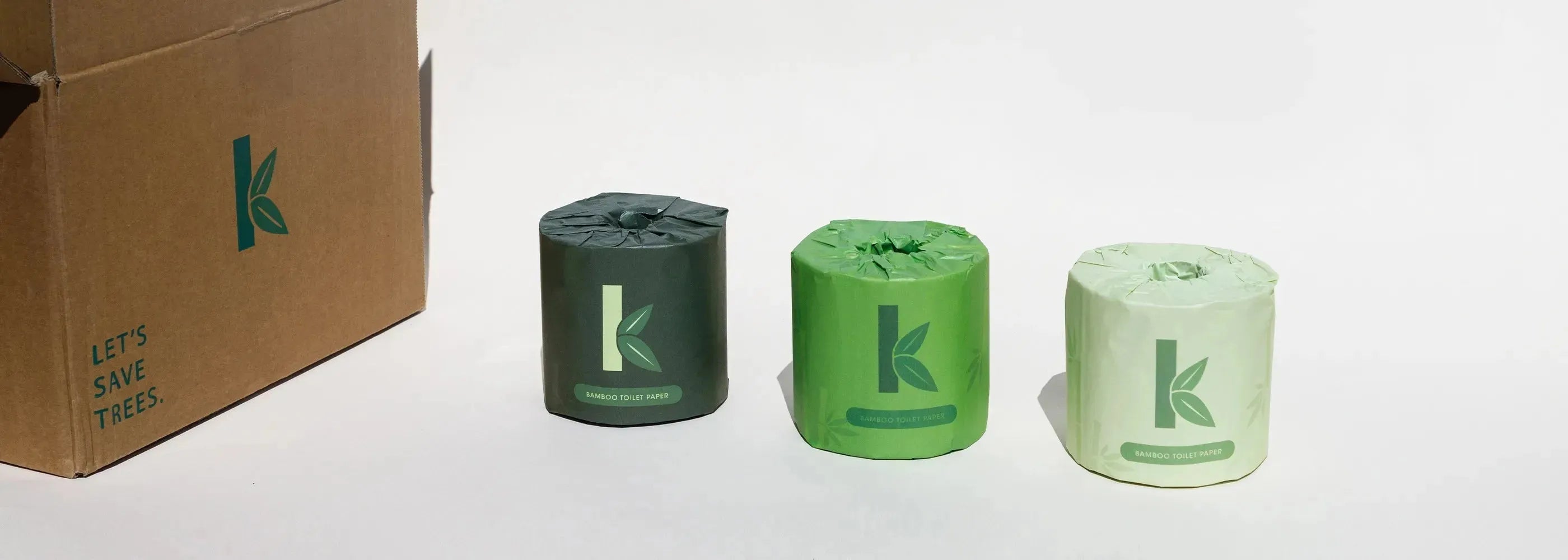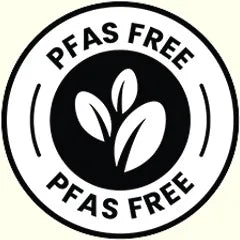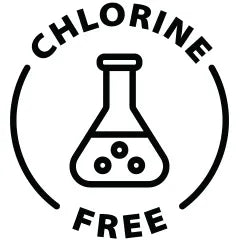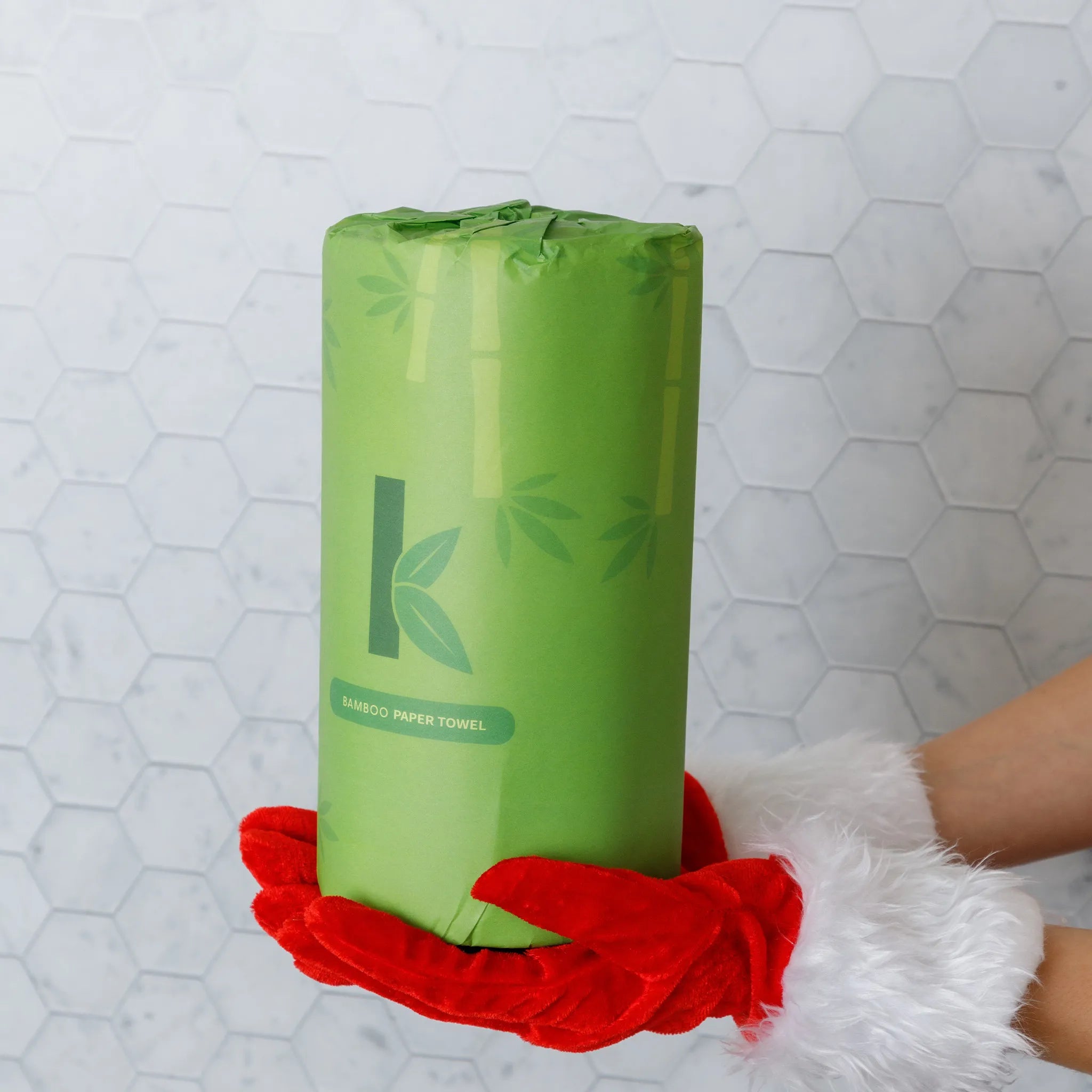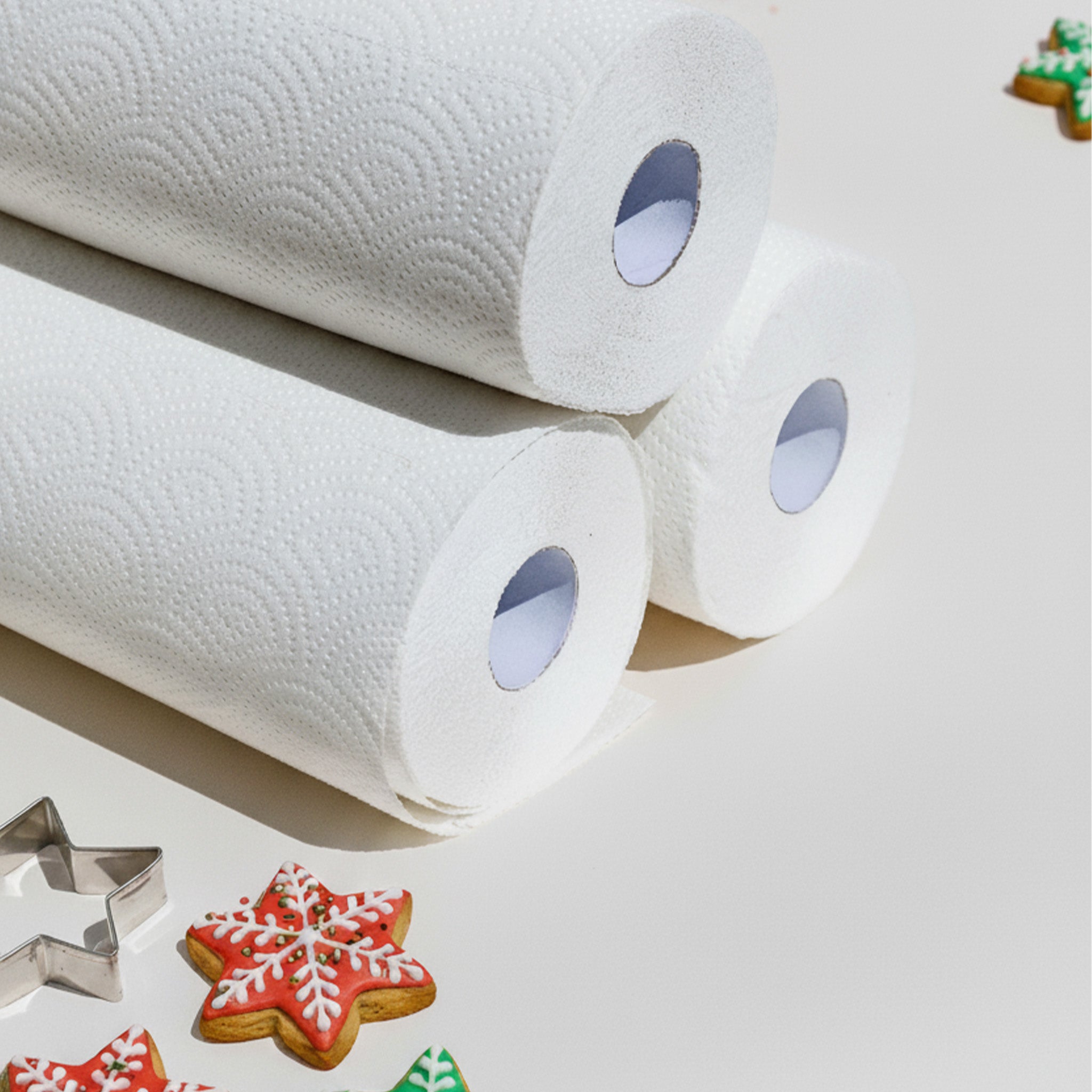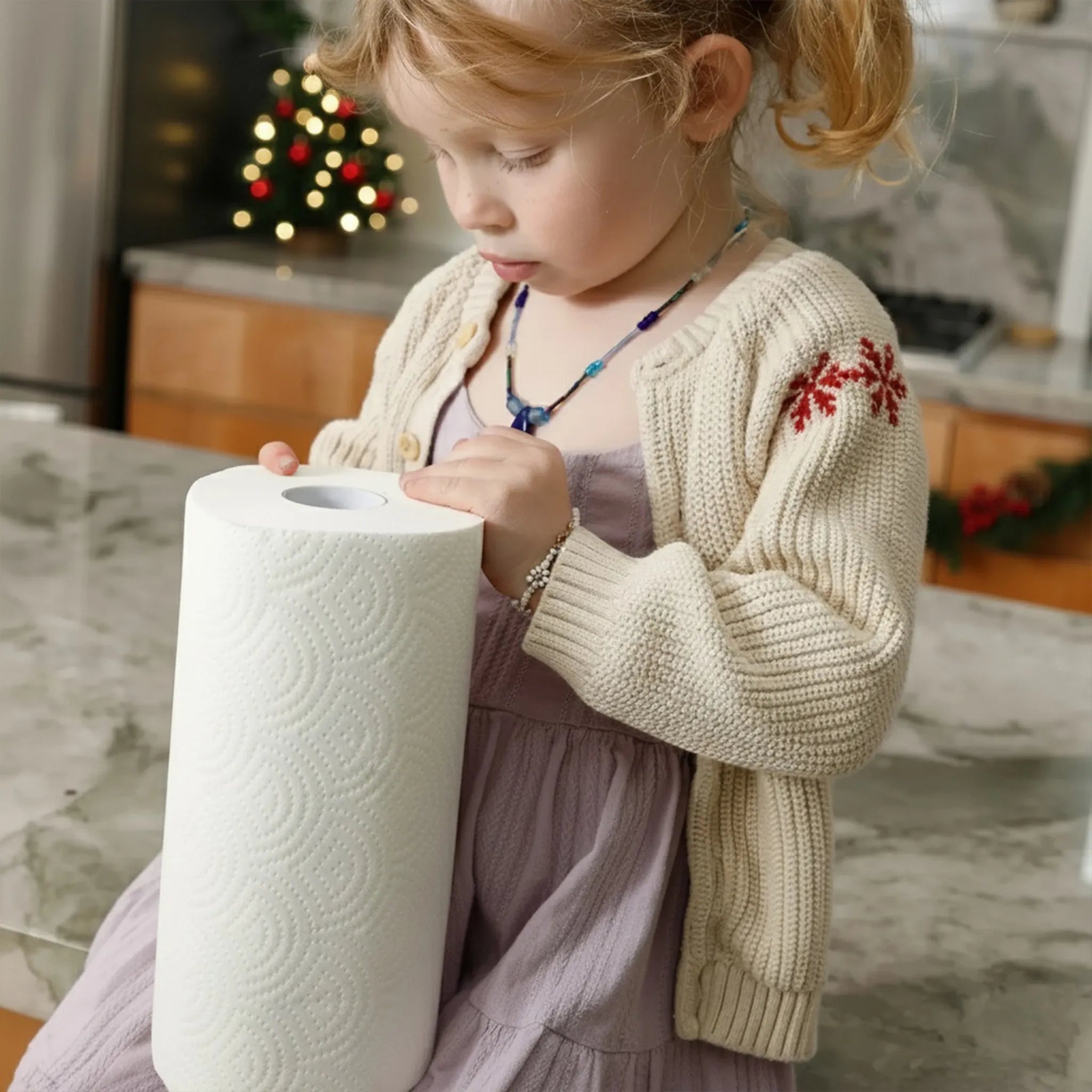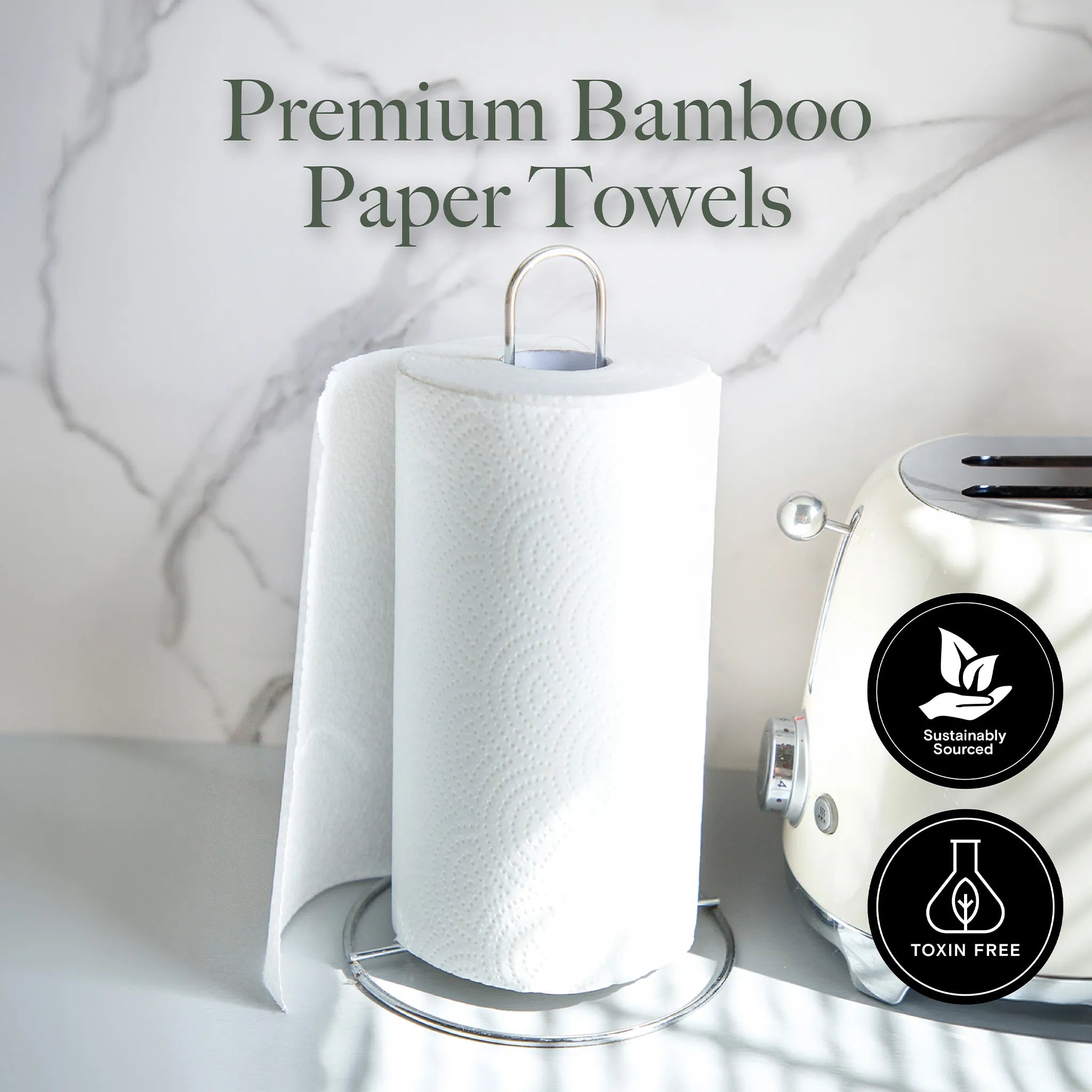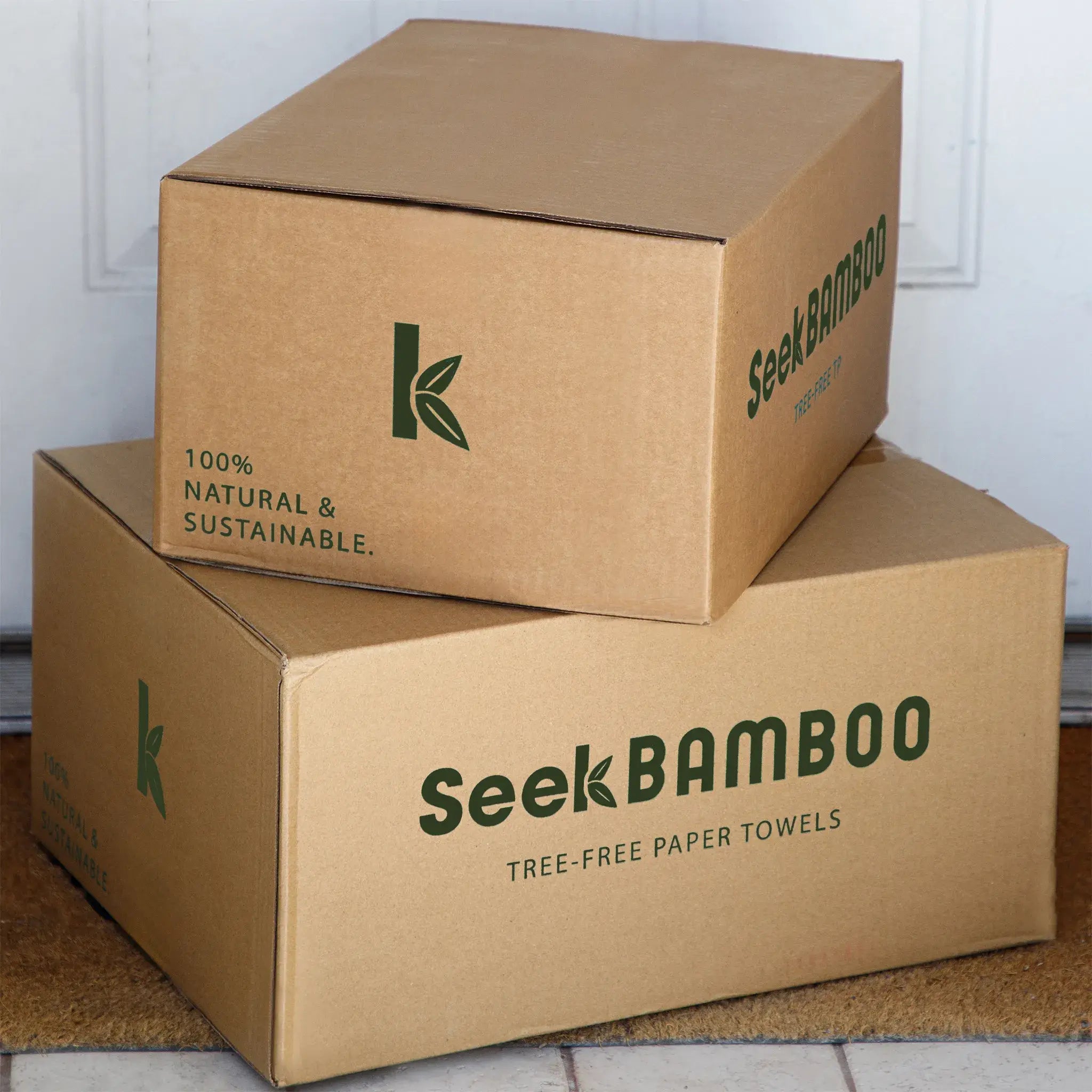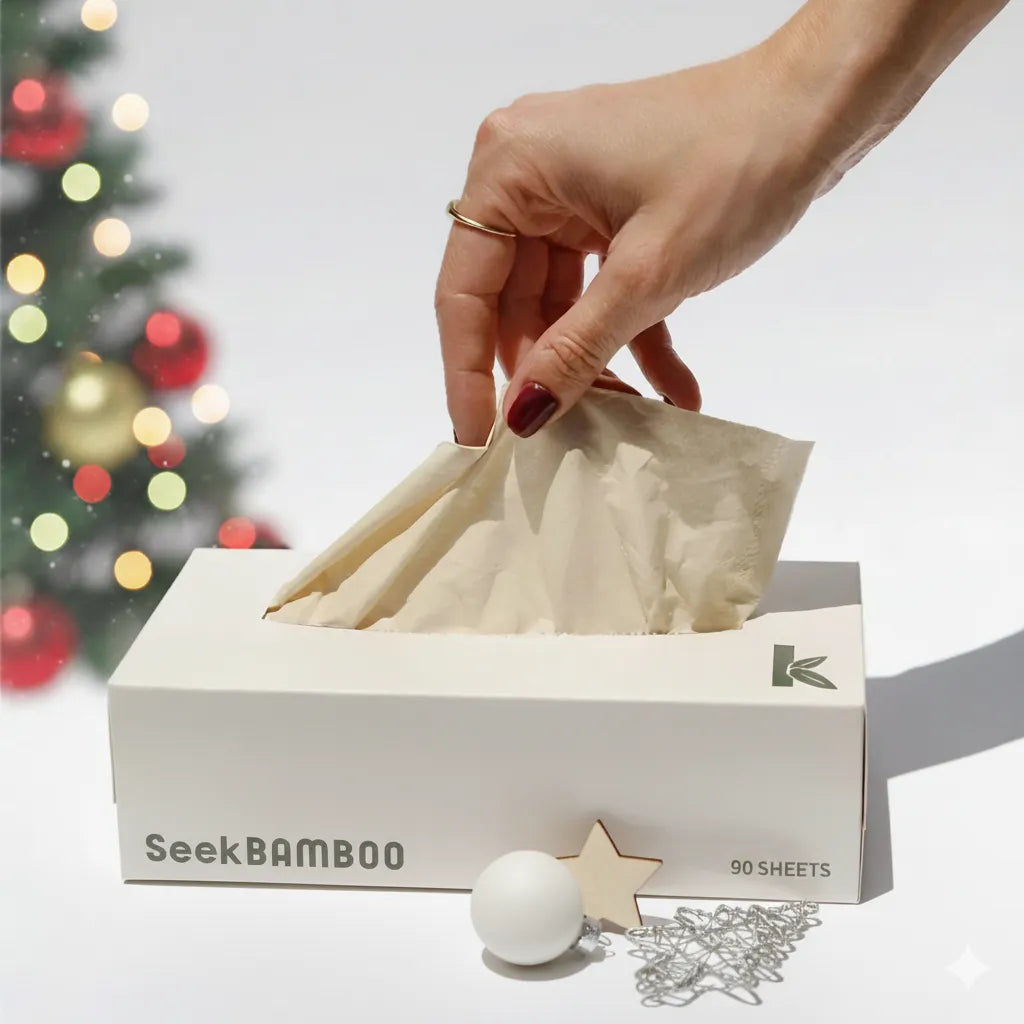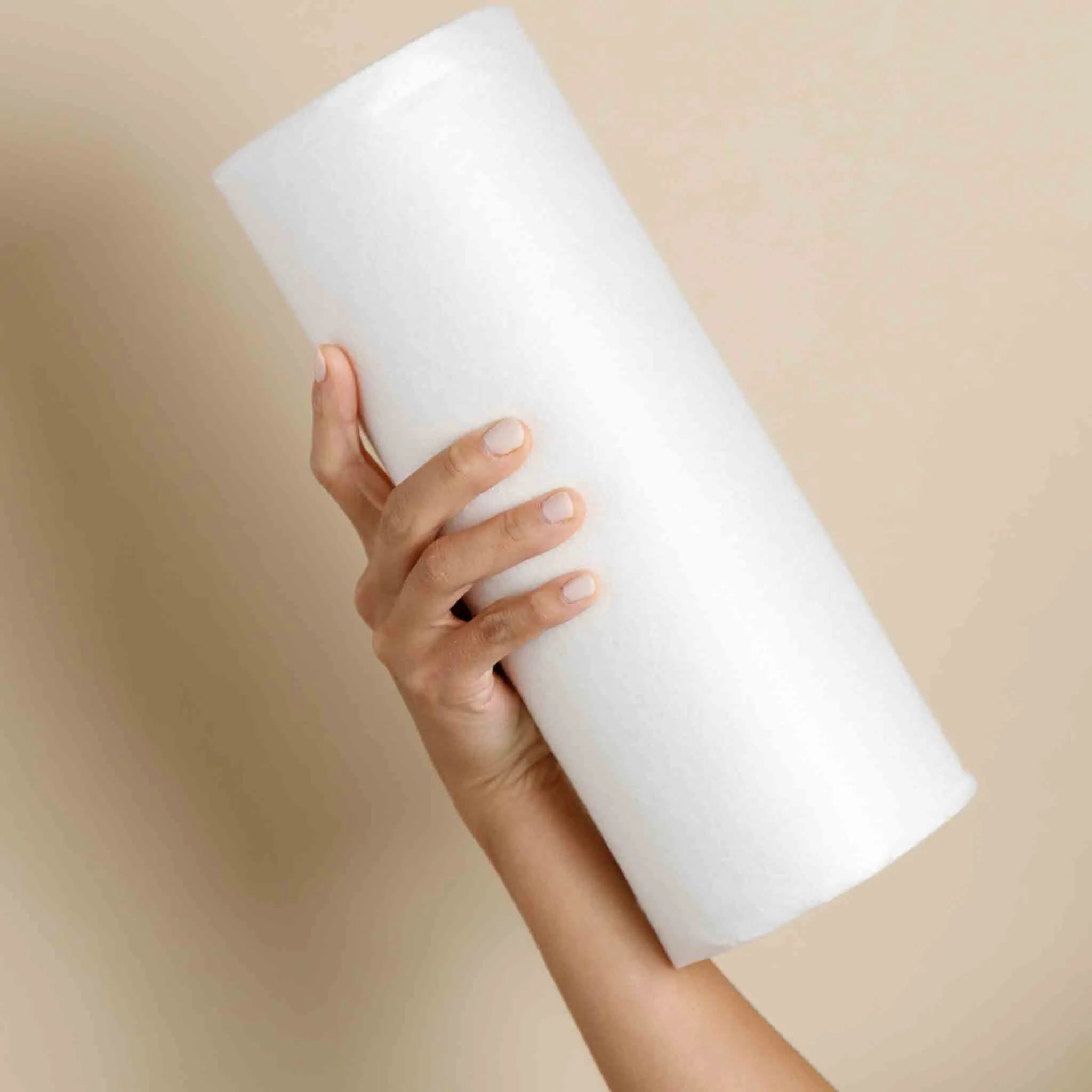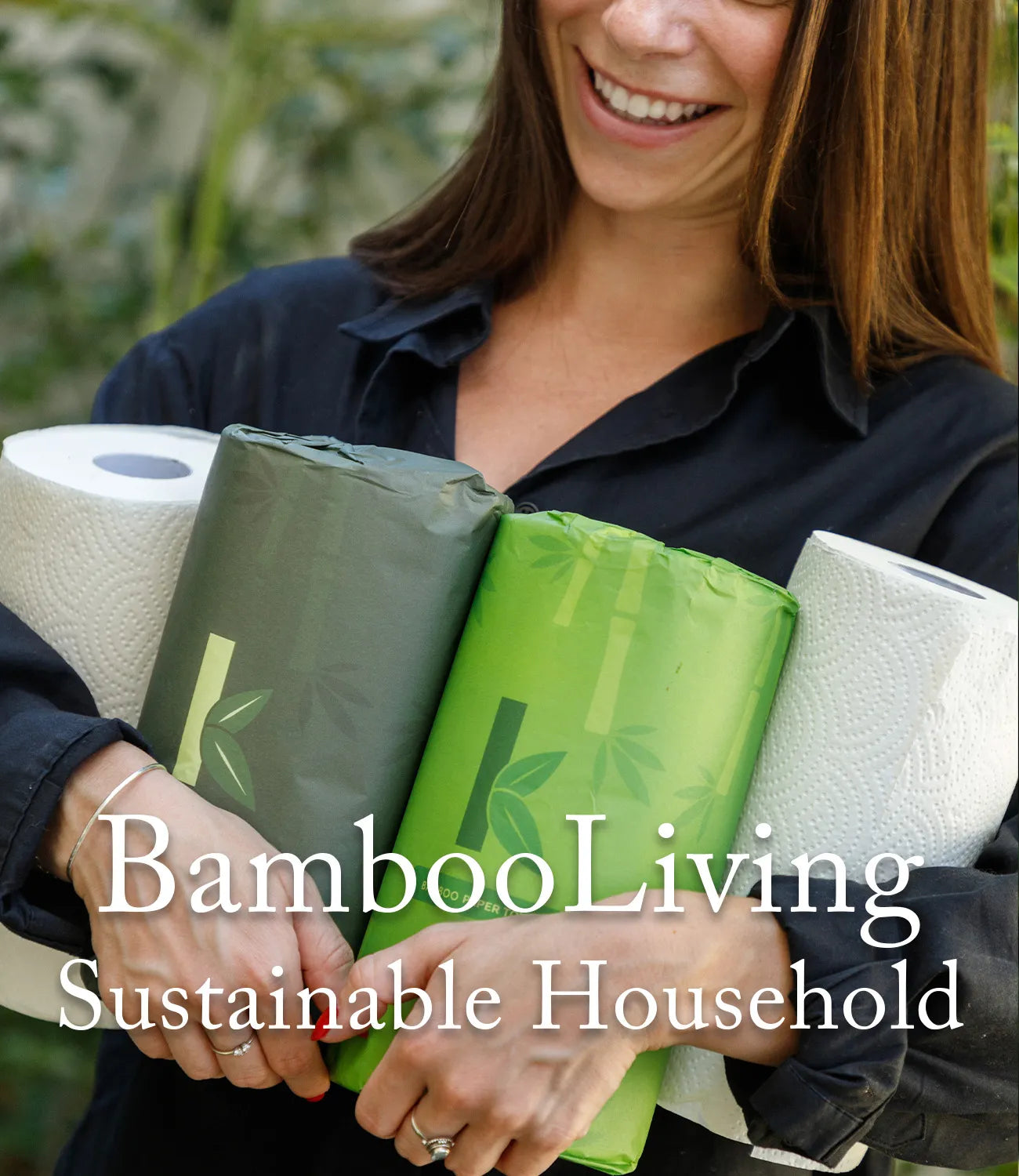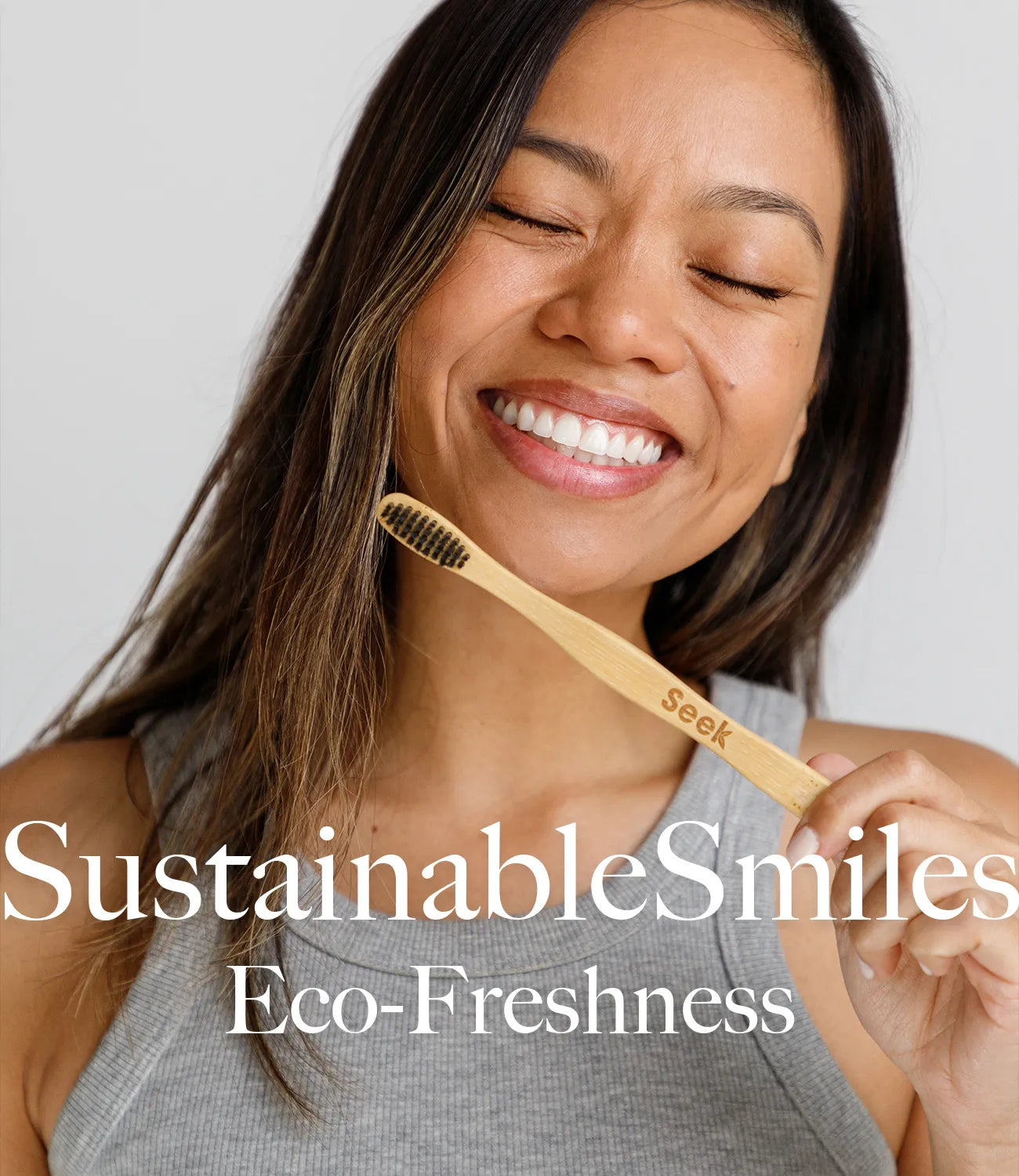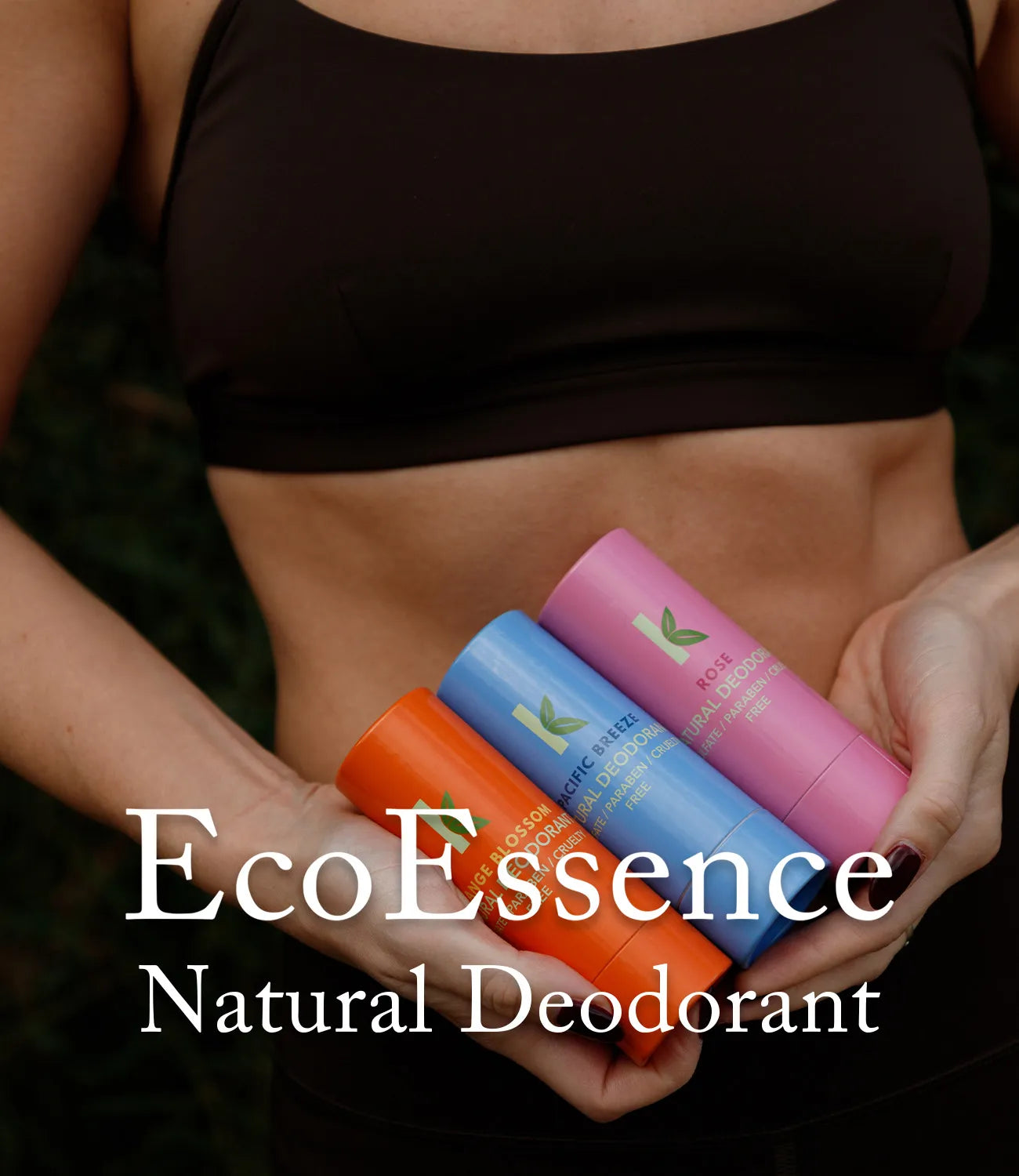Compostable Toilet Paper
With the growing focus on sustainability, many are wondering if even the smallest household items, like toilet paper, can be composted. Composting is a fantastic way to reduce waste and create nutrient-rich soil, but not all toilet paper is compost-friendly. In this guide, we’ll explore what makes toilet paper compostable, the types to avoid, and why bamboo toilet paper is the perfect solution for eco-conscious individuals. Whether you're new to composting or looking to improve your sustainable habits, understanding the role toilet paper plays in waste reduction is a great first step towards greener living.
What Makes Toilet Paper Compostable?
Composting is a simple, eco-friendly method of breaking down organic materials into nutrient-rich soil. For toilet paper to be considered compostable, it must meet certain criteria, primarily being made from natural materials that can decompose quickly without leaving harmful residues. Let’s explore what makes toilet paper compostable and why choosing the right type is essential for both your garden and the environment.
Natural, Chemical-Free Fibers
The primary factor in compostable toilet paper is its composition. Compostable toilet paper is typically made from natural fibers like bamboo, recycled paper, or unbleached wood pulp. These fibers break down easily in composting environments, making them ideal for adding to your compost bin.
Why natural fibers matter:
- Quick Decomposition: Natural fibers decompose faster than synthetic materials, such as plastics or chemically treated paper, which can linger in compost for years without breaking down fully.
- No Harmful Residue: Toilet paper made from natural, chemical-free sources won't introduce toxic substances into the compost, ensuring that the soil remains clean and safe for plants.
For example, bamboo toilet paper is a standout choice due to its eco-friendly properties. Bamboo grows rapidly and requires fewer resources like water and pesticides compared to traditional trees. Additionally, bamboo fibers are soft, durable, and decompose quickly, making it perfect for composting.
The Importance of Avoiding Chemicals
Many conventional toilet papers are treated with chemicals like chlorine bleach, fragrances, or dyes, which can negatively impact the composting process. These substances not only slow down decomposition but can also leach into the compost, potentially harming plants and soil health.
Look for toilet paper that is:
- Unbleached: This ensures there are no harsh chemicals like chlorine present, which can inhibit the composting process.
- Fragrance and Dye-Free: Avoid toilet papers with synthetic fragrances or dyes, as these can introduce unnecessary chemicals into your compost pile.
Compostable vs. Biodegradable
While compostable and biodegradable are often used interchangeably, they have distinct meanings. Understanding the difference will help you make informed choices when selecting eco-friendly toilet paper.
- Biodegradable means that a material can break down naturally by the action of microorganisms over time. However, biodegradable items don’t necessarily turn into nutrient-rich compost, and some may still leave harmful residues.
- Compostable means that a material will break down into natural elements in a compost environment, without leaving toxins behind, and typically within a specific timeframe (such as a few months). Compostable products contribute to the creation of nutrient-rich soil.
When it comes to toilet paper, compostable options like bamboo or unbleached recycled paper ensure you’re not only reducing waste but also contributing to healthier, more sustainable compost.
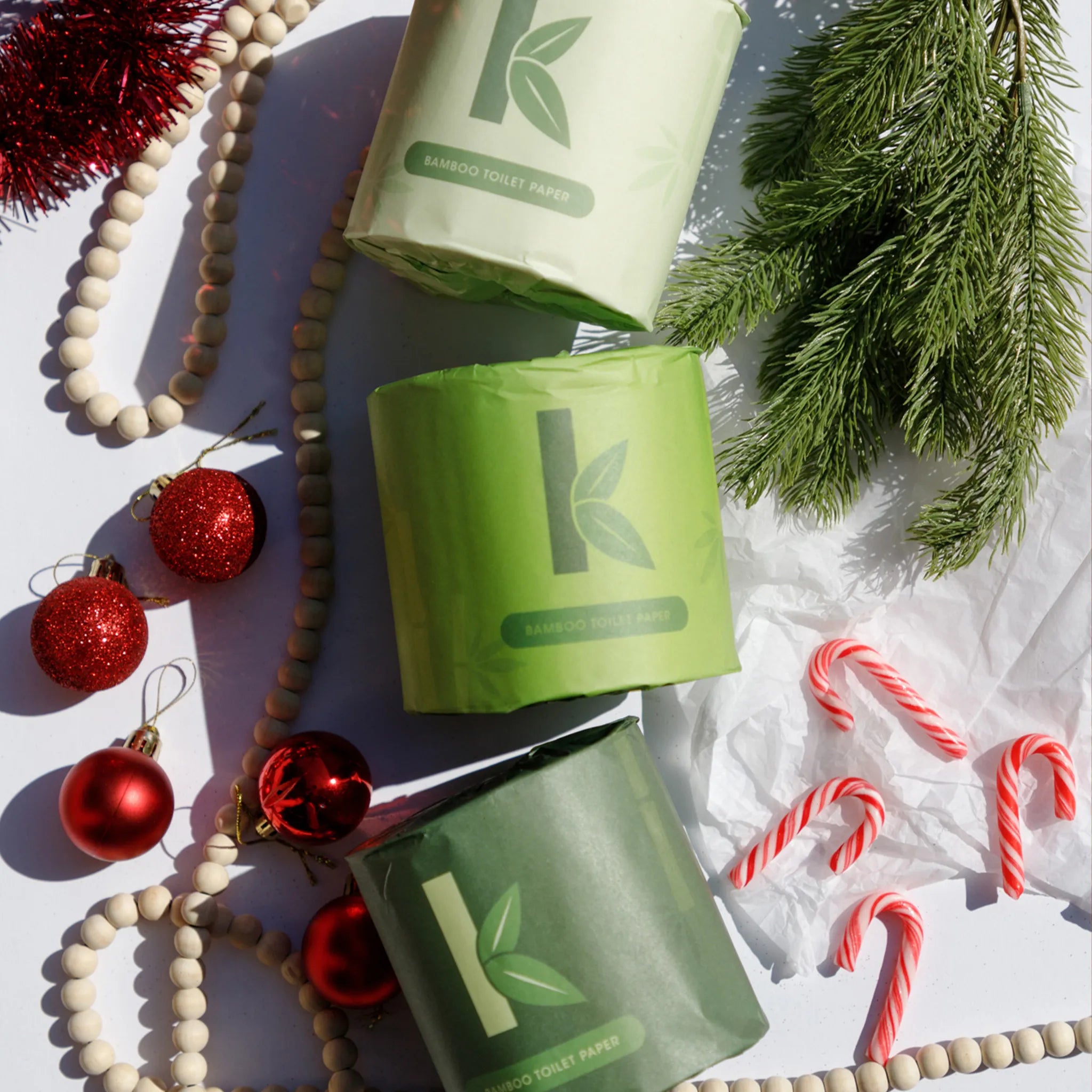
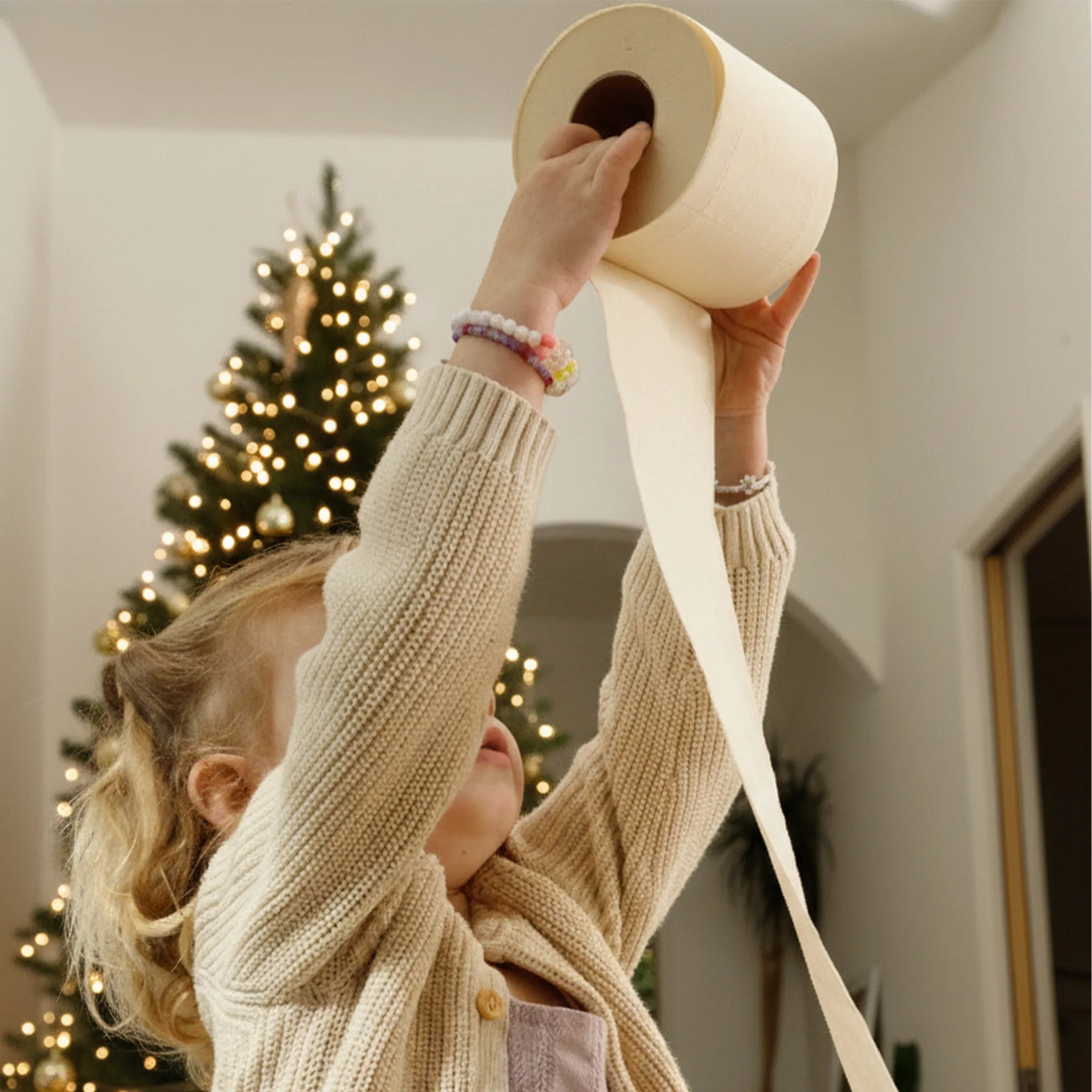
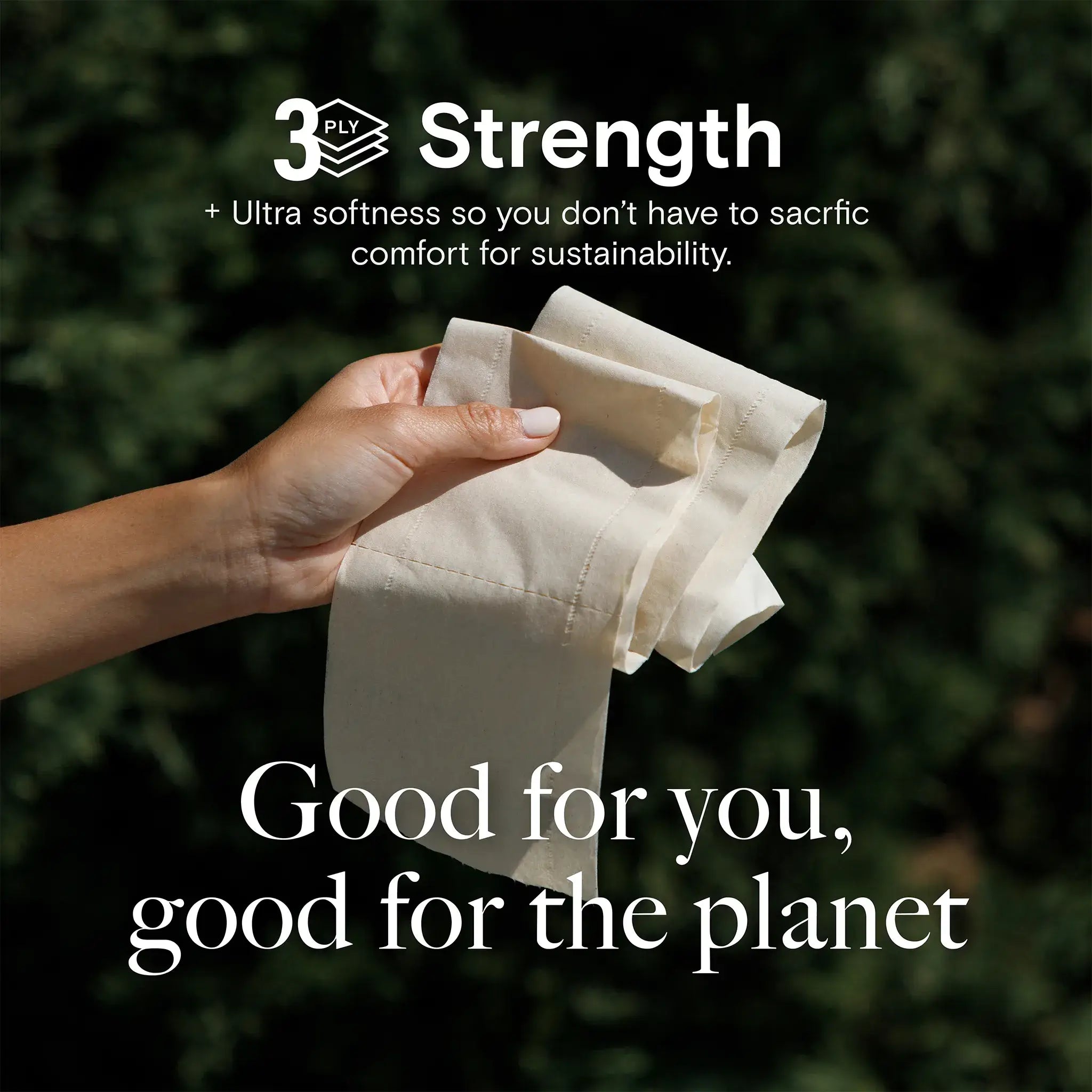
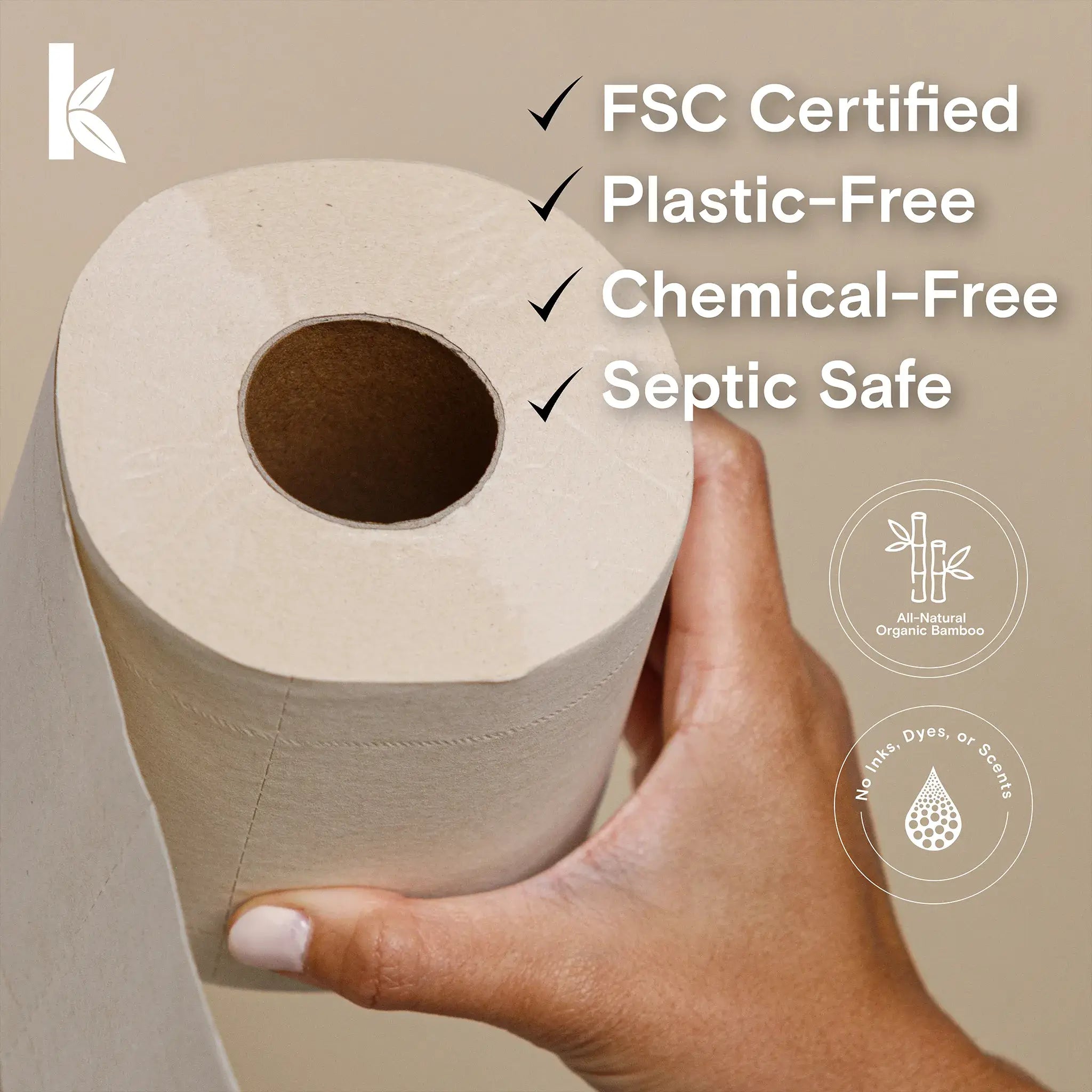

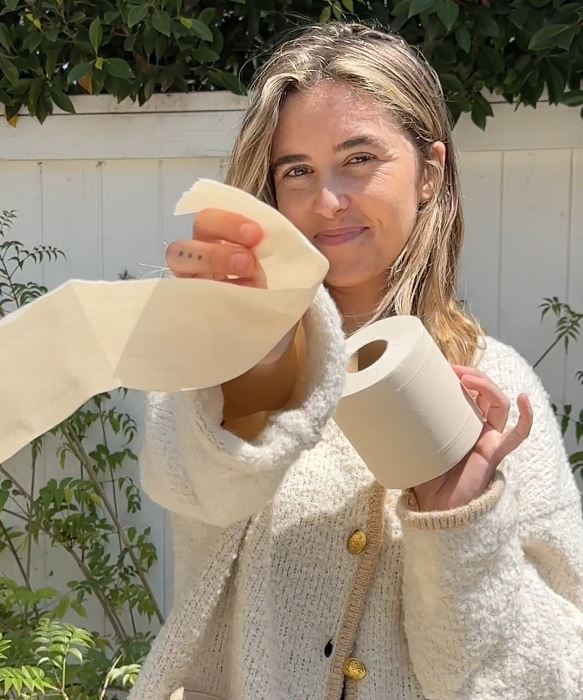
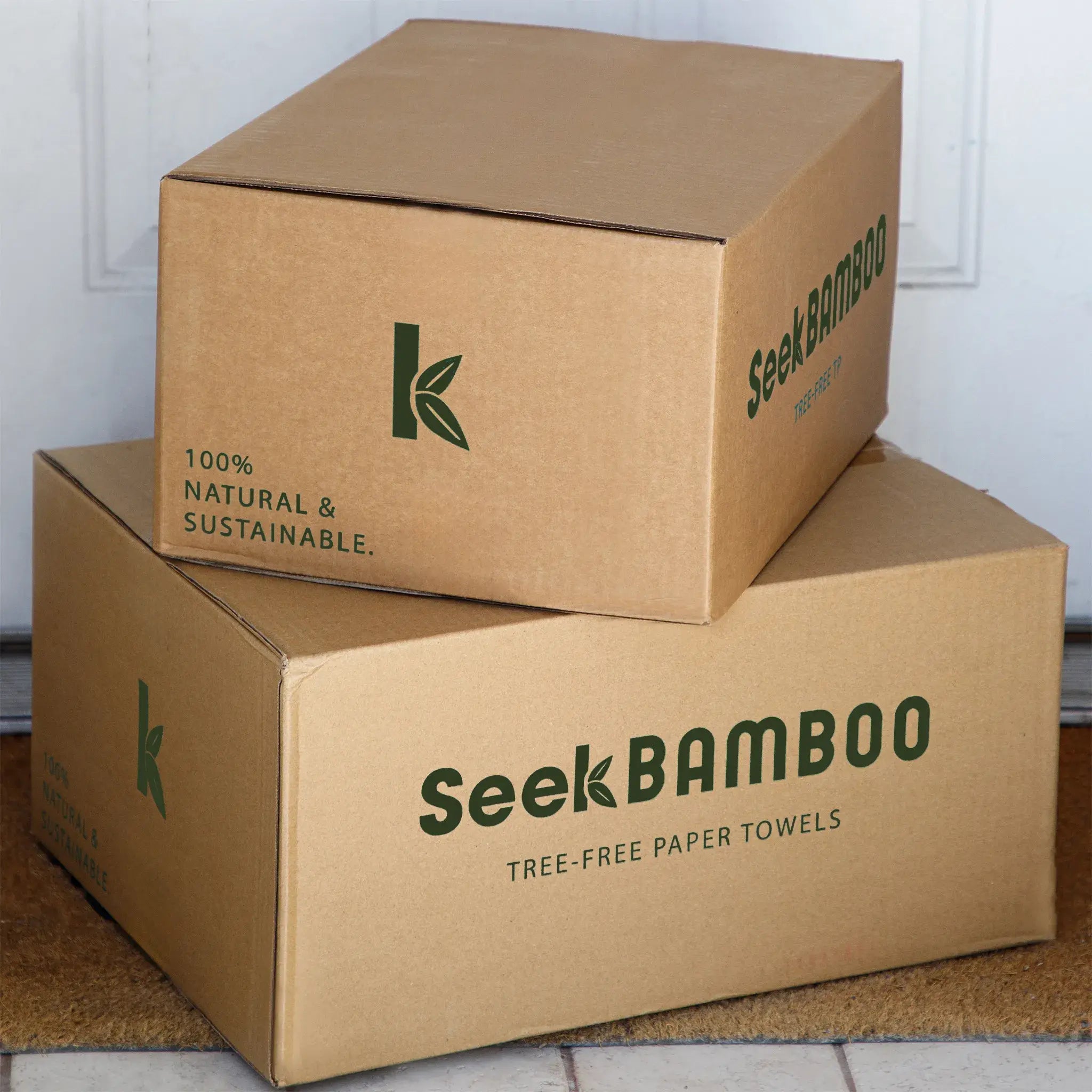
Types of Toilet Paper and Compostability
Not all toilet paper is created equal, especially when it comes to its ability to compost efficiently. While some varieties are perfect for composting, others can cause issues by introducing harmful chemicals or slowing down the composting process. Let’s break down the different types of toilet paper, so you can make the most eco-friendly choice for both your home and the planet.
Conventional Toilet Paper
Most traditional toilet paper found in stores is made from virgin wood pulp, typically sourced from trees like spruce or pine. While these fibers can technically break down in compost, conventional toilet paper is often treated with a variety of chemicals that make it less suitable for composting.
Common additives in conventional toilet paper
- Chlorine Bleach: Many brands use chlorine-based processes to whiten the paper, which leaves behind toxic by-products known as dioxins. These chemicals can leach into your compost and affect the quality of the soil.
- Fragrances and Dyes: Added for scent and appearance, these synthetic ingredients can disrupt the composting process and introduce non-biodegradable compounds into the mix.
Due to these additives, conventional toilet paper is not always ideal for composting. Although the paper itself might break down, the chemicals left behind can harm soil health and impact the environment negatively.
Recycled Toilet Paper
Recycled toilet paper is often viewed as a more eco-friendly option. Made from post-consumer paper products, it requires fewer trees and less water to produce. However, while recycled toilet paper is better for the environment in terms of production, it still faces some challenges in compostability.
Potential concerns with recycled toilet paper:
- Chemical Residues: Even recycled paper can contain remnants of chemicals used in the original paper products, such as inks or dyes, which can interfere with the composting process.
- Shorter Fibers: The fibers in recycled toilet paper are shorter and weaker than those in virgin paper, meaning they may take longer to break down fully in compost.
Despite these concerns, recycled toilet paper is still a more eco-friendly choice compared to conventional varieties. It’s generally compostable, but it’s important to choose brands that avoid chlorine bleach and unnecessary additives to ensure a cleaner composting process.
Bamboo Toilet Paper: The Ideal Compostable Choice
Bamboo toilet paper is quickly becoming the go-to option for eco-conscious consumers, and for good reason. Unlike traditional toilet papers, bamboo toilet paper is made from a renewable resource that grows rapidly with minimal water and no pesticides.
Why bamboo toilet paper is ideal for composting
- Natural and Chemical-Free: Bamboo toilet paper is typically free from chlorine, fragrances, and dyes, making it a safe addition to your compost pile. Its all-natural composition means it breaks down quickly and doesn’t introduce harmful chemicals into the soil.
- Strong and Soft Fibers: Bamboo fibers are strong yet soft, meaning that even though they provide a luxurious feel, they still decompose easily when exposed to the right composting conditions.
- Sustainable Production: Bamboo grows much faster than traditional trees used for toilet paper production, making it a highly sustainable material. Not only does this reduce deforestation, but it also ensures that the toilet paper you’re using has a minimal environmental footprint from start to finish.
For those looking to compost toilet paper as part of a zero-waste lifestyle, bamboo toilet paper stands out as the best choice. It combines all the benefits of compostable materials with the added sustainability of bamboo, making it an eco-friendly option that’s good for both your home and the planet.

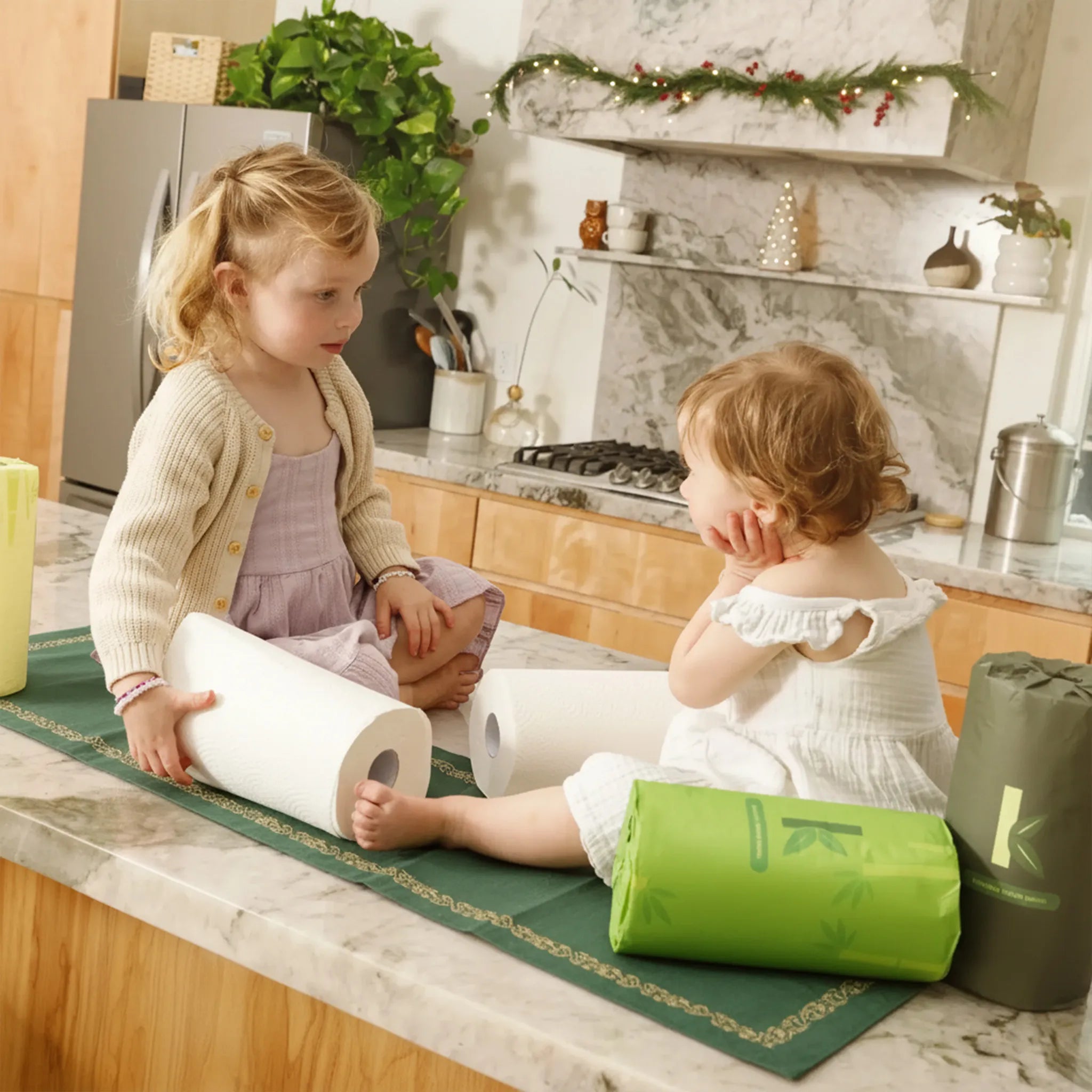
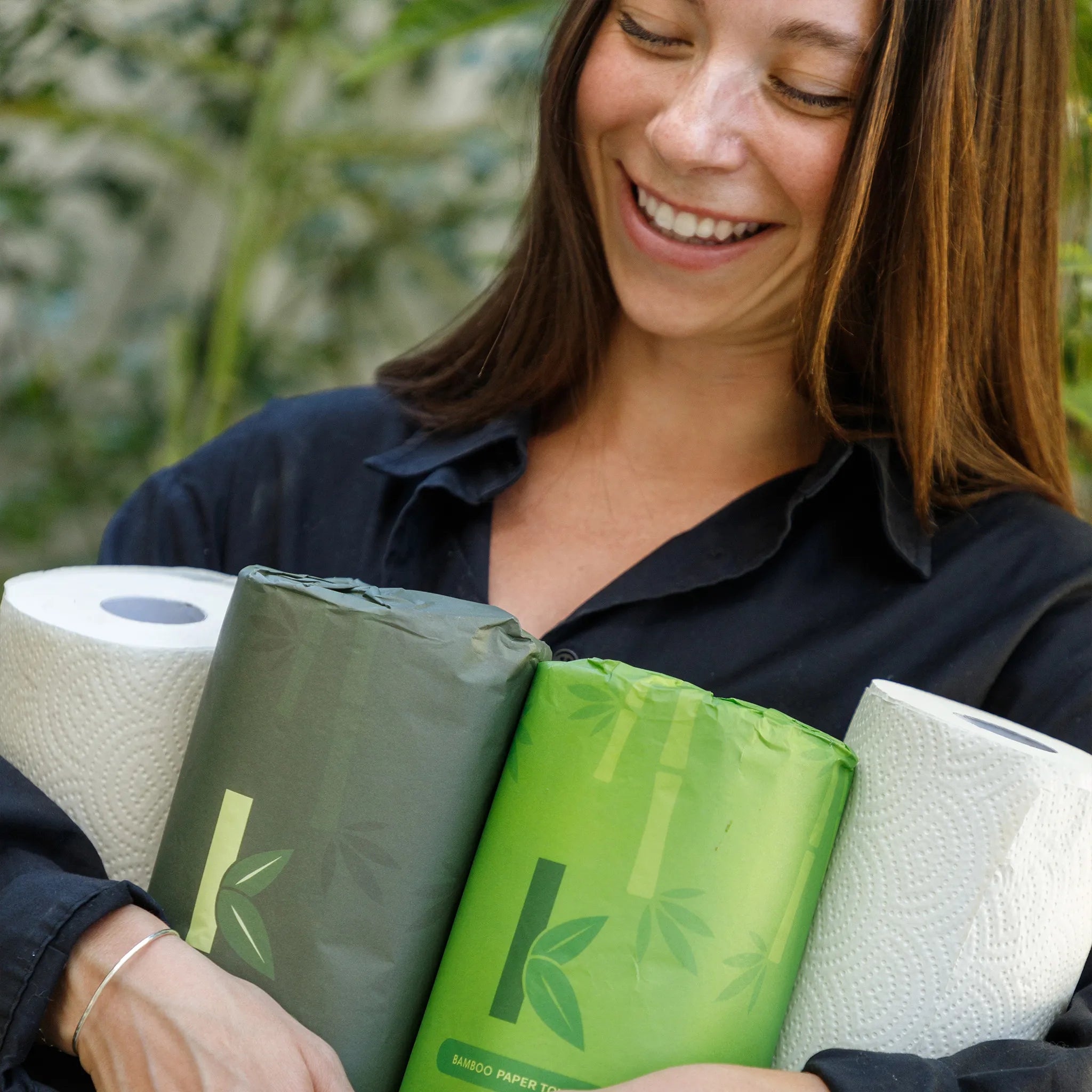



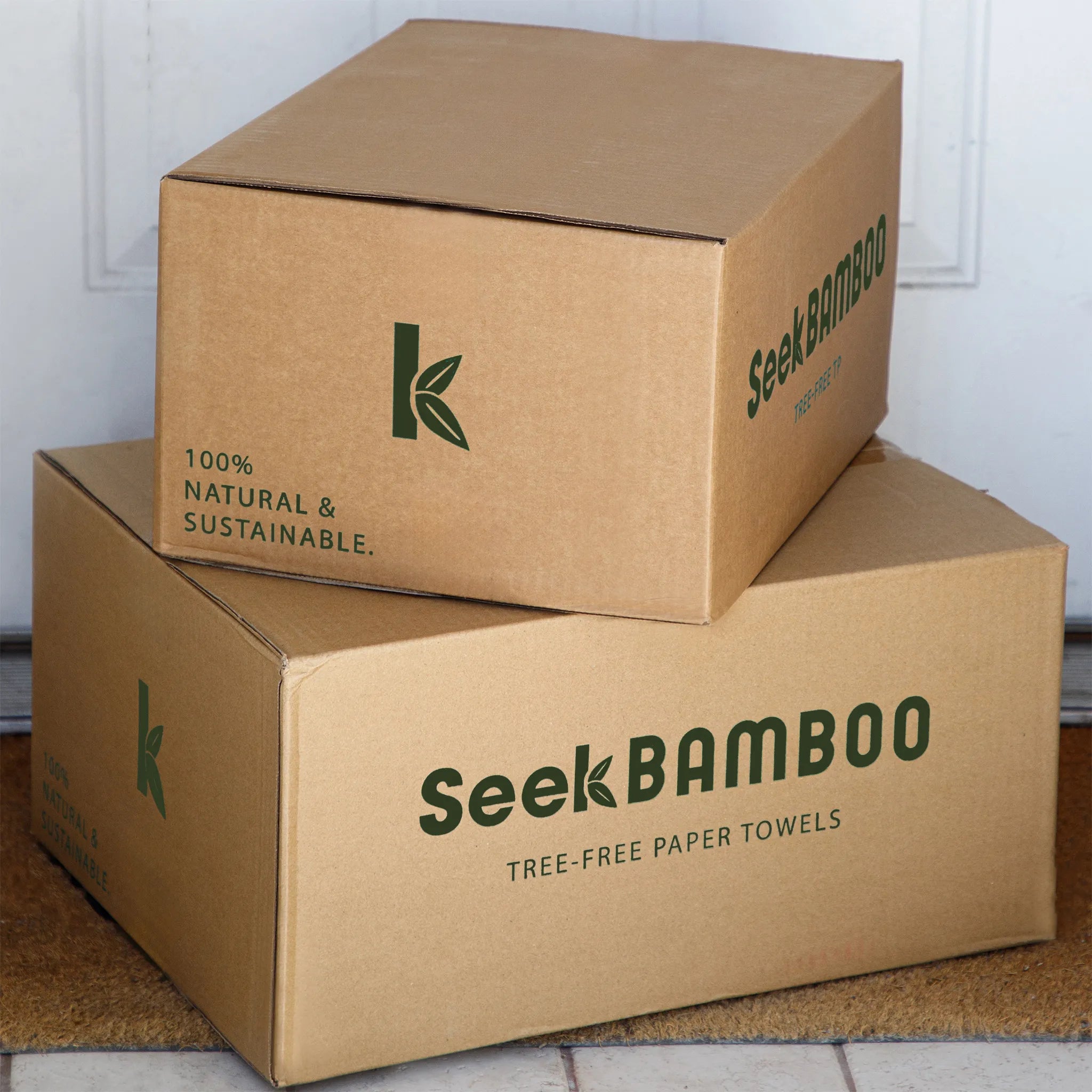
Benefits of Composting Toilet Paper
Composting toilet paper is a simple yet powerful way to reduce household waste and contribute to a healthier planet. While many people are familiar with composting kitchen scraps or yard waste, adding toilet paper to your compost pile offers unique environmental and practical advantages. Let’s dive into the key benefits of composting toilet paper and how it supports sustainable living.
Reduces Landfill Waste
One of the most significant environmental benefits of composting toilet paper is reducing the volume of waste that ends up in landfills. On average, Americans use about 141 rolls of toilet paper per year per person, most of which is discarded after a single use. Composting turns this waste into valuable compost material rather than sending it to landfills, where it would contribute to methane emissions.
Why it matters:
- Decreasing Landfill Burden: Landfills are already overcrowded, and reducing the amount of waste sent to them helps conserve space and lower greenhouse gas emissions.
- Lowering Methane Production: Organic waste, like toilet paper, generates methane when it decomposes in landfills without access to oxygen. Methane is a potent greenhouse gas, contributing significantly to global warming. By composting toilet paper, you’re helping reduce this harmful impact.
Enriches Soil with Nutrients
Composting toilet paper adds organic material to your compost pile, which helps create nutrient-rich soil. As the paper breaks down, it releases carbon and other essential elements that improve soil structure and fertility, making it perfect for gardening or landscaping.
How composted toilet paper benefits soil:
- Improved Soil Aeration: Composting toilet paper contributes to the carbon-to-nitrogen balance in your compost pile, which helps the material break down efficiently and create healthy, aerated soil.
- Better Water Retention: Compost improves the soil's ability to retain moisture, reducing the need for frequent watering and helping plants grow more effectively.
- Boosting Organic Matter: The compost created from toilet paper boosts the organic content of the soil, which supports plant growth, increases microbial activity, and enhances overall soil health.
Saves Money and Resources
Composting toilet paper isn’t just good for the environment—it can also save you money. Using compost in your garden reduces the need for store-bought fertilizers, mulch, and water retention products. Over time, this can lead to substantial savings, especially for avid gardeners.
Cost-saving benefits:
- Free Fertilizer: Compost provides a natural source of nutrients, eliminating the need for chemical fertilizers.
- Less Mulch Needed: Compost serves as an effective ground cover, helping retain moisture and protect plant roots, reducing the need for store-bought mulch.
- Healthier Gardens: Plants thrive in nutrient-rich, well-composted soil, leading to healthier crops and flowers, reducing the need for expensive plant care products.
Improper Storage: How to Avoid Degradation
Improper storage can accelerate the degradation of toilet paper, reducing its lifespan and effectiveness. Here are some tips to ensure your toilet paper stays in top condition:
- Avoid Moist Areas: Keep toilet paper away from bathrooms, basements, or any area prone to humidity. Consider storing it in a closet or pantry with good ventilation.
- Keep It Covered: Use sealed containers or keep toilet paper in its original packaging to protect it from moisture, light, and dust.
- Check Regularly: If you’ve been storing toilet paper for an extended period, check it periodically for signs of degradation, such as yellowing, brittleness, or an unusual odor.
By understanding the environmental factors that can affect the quality of toilet paper, you can take steps to store it properly and extend its lifespan. Whether you’re stocking up on traditional rolls or opting for durable bamboo toilet paper, proper storage practices will help ensure that your supply remains fresh, strong, and ready to use whenever you need it.
The Perfect Compostable Solution
When it comes to making eco-friendly choices, bamboo toilet paper stands out as the ideal solution for both compostability and sustainability. Unlike conventional toilet paper, which is often treated with chemicals and sourced from slow-growing trees, bamboo toilet paper is an all-natural, renewable resource that offers numerous environmental benefits. Let’s explore why bamboo toilet paper is the perfect choice for composting and how it fits seamlessly into a sustainable lifestyle.
Rapid Growth and Sustainability
Bamboo is one of the fastest-growing plants in the world, capable of regenerating from its own roots without the need for replanting. This makes it an incredibly renewable resource. In fact, bamboo can grow up to 35 inches in just a single day under the right conditions. Its fast growth means that bamboo toilet paper requires significantly less land, water, and time to produce compared to traditional toilet paper made from trees.
Why bamboo’s growth matters:
- Minimal Environmental Impact: Bamboo thrives naturally without the need for harmful pesticides or fertilizers, reducing the chemicals introduced into the environment. It also requires less water than trees, making it an excellent choice for water conservation.
- Regenerative Resource: Bamboo’s ability to grow back quickly after being harvested ensures that the resource is not depleted. This means less deforestation and a smaller carbon footprint for your toilet paper usage.
Chemical-Free and Eco-Friendly
One of the most important factors when it comes to compostability is avoiding products that contain harsh chemicals. Bamboo toilet paper is typically free from chlorine bleach, fragrances, and dyes—all of which can be harmful to both your compost pile and the environment. Unlike conventional toilet paper, bamboo paper doesn’t need these chemicals to achieve a soft, luxurious feel.
How bamboo toilet paper benefits composting:
- No Harmful Residue: Bamboo toilet paper breaks down naturally in compost without leaving behind toxins or chemicals that can interfere with soil health.
- Perfect for Sensitive Systems: Because it’s free from synthetic additives, bamboo toilet paper is gentle on both your plumbing system and your compost pile, ensuring a smoother breakdown process.
The Ultimate Zero-Waste Choice
For individuals and families committed to a zero-waste lifestyle, bamboo toilet paper is the ultimate solution. Its compostability, renewable sourcing, and chemical-free composition make it a guilt-free choice that contributes to reducing overall household waste.
Why bamboo toilet paper is a zero-waste champion:
- Completely Biodegradable: Bamboo toilet paper fully decomposes in compost, leaving behind no synthetic materials or toxic substances. This supports your efforts to minimize waste and live a more sustainable life.
- Reduces Deforestation: Every roll of bamboo toilet paper helps reduce the demand for tree-based paper products, preserving forests and supporting biodiversity.
By switching to bamboo toilet paper, you’re not just making a better choice for your household—you’re making a positive impact on the environment. Its compostability, sustainability, and eco-friendly production processes ensure that you’re contributing to a cleaner, greener world.
What Toilet Paper Should You Avoid Composting?
While composting toilet paper can be a great way to reduce waste and contribute to soil health, not all toilet paper is suitable for your compost pile. Some types contain chemicals or synthetic additives that can hinder the composting process and introduce harmful substances into your soil. To ensure your compost stays clean and nutrient-rich, it’s important to know what to avoid. Let’s take a closer look at the types of toilet paper that shouldn’t go into your compost bin.
Toilet Paper with Synthetic Additives
Many conventional toilet paper brands add synthetic materials during the manufacturing process to increase strength, texture, or softness. These additives, such as softening agents or artificial binders, are not biodegradable and can take years to break down, if at all. If composted, these synthetic materials won’t decompose properly and can lead to contamination of your soil.
Why avoid synthetic additives:
- Slows Down Decomposition: Synthetic additives make toilet paper more resistant to breakdown, meaning it may not fully compost even after several months.
- Soil Contamination: When these materials don’t break down, they can accumulate in your compost and transfer into the soil, reducing the quality of the compost and potentially harming plant growth.
Fragranced or Dyed Toilet Paper
Toilet paper that has been treated with fragrances or colored dyes may seem harmless, but these chemicals can disrupt the composting process and introduce toxins into your soil. Many fragrances are synthetic, and even though dyes may be labeled “safe,” they can leave behind chemical residues that are not conducive to healthy composting.
The issue with fragrances and dyes:
- Potential Toxicity: Synthetic fragrances often contain chemicals like phthalates, which are known to disrupt hormone systems and can be harmful if they enter the soil. Dyes, even in small amounts, can add unwanted chemicals that may affect the integrity of your compost.
- Risk to Plant Health: When your compost is used in gardens or landscaping, these chemicals can leach into the soil and affect the growth and health of plants.
Bleached Toilet Paper
One of the most common additives in conventional toilet paper is chlorine bleach, which is used to whiten the paper. Chlorine bleaching leaves behind toxic by-products known as dioxins, which can persist in the environment and accumulate in your compost pile. These dioxins are harmful to both humans and wildlife, making bleached toilet paper a poor choice for composting.
The dangers of bleach:
- Environmental Contamination: Dioxins produced from chlorine bleaching can be harmful when introduced into compost. Once in the soil, these chemicals can linger for long periods and may pose health risks to humans, animals, and plants.
- Hindered Decomposition: Bleached toilet paper may break down more slowly due to the chemical treatments it undergoes. This can lead to incomplete composting and lower-quality compost.
Toilet Paper Treated with Lotion or Moisturizers
Some toilet paper brands include added moisturizers or lotions to make the product softer and more soothing for the skin. While these additives may be a comfort during use, they often contain petroleum-based ingredients that do not break down in compost. Introducing these products into your compost pile can disrupt microbial activity and slow down the breakdown of organic materials.
Why lotions and moisturizers are problematic:
- Non-Biodegradable Ingredients: Many lotions contain synthetic oils or waxes that won’t decompose, leading to build-up in your compost and potential contamination of the soil.
- Disrupts Microbial Balance: The presence of non-organic compounds in lotions can inhibit the work of beneficial microbes that are essential for breaking down compost materials efficiently.
Toilet Paper with Inks or Prints
Some toilet papers come with decorative patterns or colored prints. While these designs may look appealing, the inks used to create them can contain toxic chemicals or heavy metals. Even if the packaging claims that the inks are safe, they can still leave residues in your compost, particularly if the inks are petroleum-based.
How printed toilet paper affects composting:
- Chemical Residue: Inks often contain a range of chemicals that don’t break down naturally and can negatively impact the health of your compost pile.
- Potential Soil Contamination: If the inks contain heavy metals, they can end up in your compost, ultimately affecting the plants that rely on that compost for nutrients.
Composting vs. Recycling Toilet Paper
When it comes to reducing waste and making eco-conscious decisions, both composting and recycling toilet paper offer sustainable alternatives. However, understanding the differences between these two processes can help you decide which method is best for your household and the environment. Let’s explore the benefits and drawbacks of composting vs. recycling toilet paper and why bamboo toilet paper stands out as the best choice for both methods.
Recycling Toilet Paper: How It Works
Recycling toilet paper typically refers to the process of creating new toilet paper from post-consumer recycled materials, such as office paper or old newspapers. The recycling process involves breaking down these paper products into pulp, which is then cleaned, sanitized, and processed into new toilet paper rolls.
Advantages of Recycling:
- Reduces Tree Usage: By recycling existing paper products, the demand for virgin tree pulp is significantly reduced, which helps prevent deforestation and conserves natural resources.
- Energy Savings: The process of recycling paper uses less energy compared to manufacturing new paper from raw materials, helping reduce the carbon footprint of paper production.
- Waste Reduction: Recycling helps divert paper waste from landfills, reducing the volume of trash and the associated environmental impact.
Challenges with Recycling Toilet Paper
Limited Lifespan of Fibers: Every time paper is recycled, the fibers become shorter and weaker. After several rounds of recycling, the fibers become too weak to be reused, limiting how many times toilet paper can be recycled before it can no longer serve its purpose.
Chemical Treatments: Recycled toilet paper may still undergo bleaching or other chemical treatments during the recycling process to ensure the final product is clean and soft, potentially introducing chemicals into the environment.
Composting Toilet Paper: A Natural Process
Composting, on the other hand, is a natural process where organic materials break down over time to create nutrient-rich soil. Composting toilet paper involves adding it to your compost pile, where it decomposes alongside other organic matter like food scraps and yard waste.
Advantages of Composting:
- Fully Decomposes: Unlike recycling, composting allows toilet paper to fully break down into organic matter, returning valuable nutrients to the soil without leaving behind synthetic residues.
- Chemical-Free: Compostable toilet paper—especially bamboo-based—doesn’t require chemical treatments like bleaching or dyeing, making it safer for your compost pile and soil.
- Zero Waste: Composting toilet paper aligns with a zero-waste lifestyle, as it closes the loop by transforming what was once considered waste into a useful resource for your garden.
Challenges with Composting Toilet Paper
Not All Toilet Paper is Suitable: Toilet paper treated with chemicals, bleach, or synthetic fragrances should not be composted, as these substances can harm the composting process and contaminate the soil.
Composting Facilities: If you don’t have a home compost system, you may need to rely on industrial composting facilities, which may not always accept toilet paper, especially if it contains human waste.
Which is More Sustainable: Composting or Recycling?
When comparing composting to recycling toilet paper, the most sustainable option depends on the type of toilet paper you’re using. For conventional toilet paper that’s made from virgin wood pulp or recycled materials, recycling may be the more practical choice. This process helps reduce deforestation and diverts waste from landfills, making it a better option for chemically treated or bleached paper.
However, if you’re using chemical-free, compostable toilet paper, such as bamboo toilet paper, composting can be the more sustainable choice. Composting allows you to return organic material to the earth, enriching the soil and completing the natural cycle of decomposition. This is especially true for bamboo toilet paper, which is made from a renewable resource and breaks down quickly in compost.
Why Bamboo Toilet Paper is Ideal for Both Composting and Recycling
Bamboo toilet paper offers the best of both worlds when it comes to composting and recycling. Here’s why it’s the preferred choice for eco-conscious consumers:
For Composting:
- Natural Fibers: Bamboo toilet paper is made from 100% natural fibers, which break down quickly and efficiently in compost without leaving harmful residues or chemicals behind.
- Chemical-Free: Since bamboo toilet paper is typically free from chlorine bleach, fragrances, and dyes, it’s safe to add to your compost pile, enriching the soil without any toxic by-products.
- Renewable Resource: Bamboo is one of the fastest-growing plants in the world, making it an incredibly sustainable option for toilet paper. It requires fewer resources to grow and harvest compared to trees, which means less environmental impact from the start.
For Recycling
Sustainable Production: Bamboo toilet paper’s production process is more eco-friendly than conventional paper because it requires fewer chemicals and less water. This makes it an ideal candidate for recycling programs, which aim to reduce the environmental footprint of paper products.
Durable Fibers: Bamboo fibers are naturally strong and durable, which means that even when recycled, the paper maintains a higher level of strength compared to traditional recycled paper. This allows bamboo toilet paper to go through more recycling cycles before the fibers become too weak for further use.
Compost with Bamboo Toilet Paper
Composting toilet paper is a simple yet impactful way to reduce waste and contribute to a healthier planet. By understanding the differences between compostable and non-compostable toilet paper, you can make more informed, eco-friendly choices for your home. Conventional toilet paper, with its added chemicals and bleach, may hinder your composting efforts, but bamboo toilet paper offers the perfect compostable solution.
Bamboo toilet paper not only breaks down naturally and quickly, but it also comes from a renewable resource, making it both environmentally friendly and highly sustainable. Whether you're composting at home or comparing the benefits of composting versus recycling, bamboo toilet paper stands out as the superior choice for reducing your carbon footprint.
By switching to bamboo toilet paper, you’re not just contributing to a zero-waste lifestyle—you’re actively making a difference in preserving our environment for future generations. So, take the step toward a more sustainable future by choosing bamboo toilet paper for both its compostability and its role in eco-conscious living.
Toilet Paper That Breaksdown
Breaking Down The FAQs of Compostable Toilet Paper
Is all toilet paper compostable?
Not all toilet paper is compostable. Conventional toilet papers often contain chemicals like chlorine bleach, synthetic fragrances, or dyes, which are not suitable for composting. However, natural, chemical-free toilet paper, such as bamboo toilet paper, is ideal for composting as it breaks down naturally without leaving harmful residues.
Can you compost toilet paper with human waste?
While it’s possible to compost toilet paper with human waste, it requires specific conditions, such as a high-temperature composting system, to safely break down pathogens. For home composting, it’s recommended to only compost toilet paper that has been used for non-human waste purposes, like wiping hands or cleaning up spills.
How long does it take for toilet paper to compost?
The time it takes for toilet paper to compost depends on factors like the composting environment and the type of toilet paper. Chemical-free toilet paper, like bamboo, typically breaks down in 1-3 months in a well-maintained compost pile. Conventional toilet paper may take longer due to added chemicals that slow down decomposition.
Why is bamboo toilet paper the best choice for composting?
Bamboo toilet paper is the ideal choice for composting because it is made from renewable, sustainable resources and is free from chemicals like bleach and synthetic fragrances. Its natural fibers break down easily in compost, enriching the soil without introducing harmful toxins, making it the most eco-friendly option.
What type of toilet paper should I avoid composting?
You should avoid composting toilet paper treated with chemicals, such as chlorine bleach, fragrances, or dyes, as these substances can leave harmful residues in the compost and negatively affect soil health. Stick to unbleached, natural toilet papers, like bamboo, for composting.
Is bamboo toilet paper compostable?
Yes, bamboo toilet paper is 100% compostable. It is made from natural, sustainable bamboo fibers that break down quickly and easily in compost, making it an eco-friendly alternative to traditional toilet paper. Plus, it’s usually free from chemicals like bleach and fragrances, which makes it safe for composting.
Can recycled toilet paper be composted?
Recycled toilet paper can generally be composted, but it’s important to ensure that it’s free from chemicals or synthetic additives. Some recycled toilet papers may still contain residues from the recycling process, so it’s always best to opt for natural, chemical-free options like bamboo.
Is composting toilet paper better than recycling it?
Composting and recycling both have environmental benefits, but composting offers a more natural way to return organic materials to the earth. While recycling conserves resources by reusing fibers, composting toilet paper, especially bamboo toilet paper, enriches the soil and reduces waste without requiring chemical processes.
How do I compost toilet paper at home?
To compost toilet paper at home, simply add it to your compost pile along with other organic materials like food scraps and yard waste. Make sure the toilet paper is free from chemicals or additives. Bamboo toilet paper is a great choice, as it decomposes quickly and doesn’t contain harmful substances.
Can toilet paper be composted in any composting system?
Toilet paper can generally be composted in most systems, but the process works best in a hot composting system that maintains higher temperatures, which accelerates the breakdown of materials. If you’re using bamboo toilet paper, it will break down more efficiently due to its natural fibers, even in a traditional compost pile.


